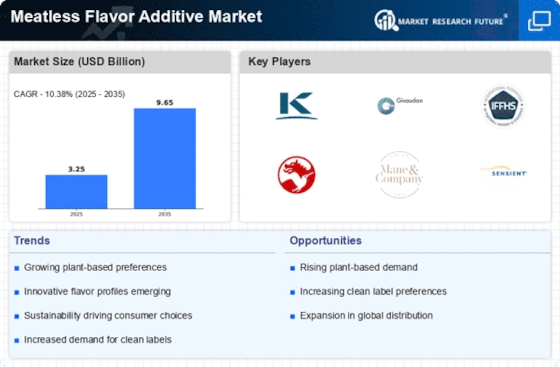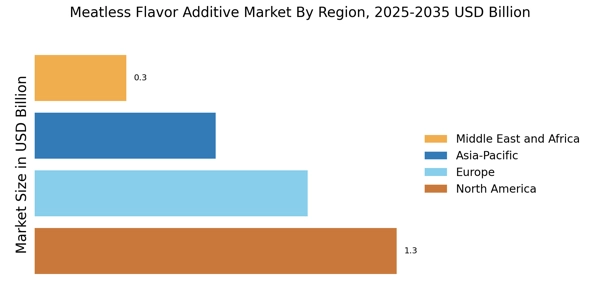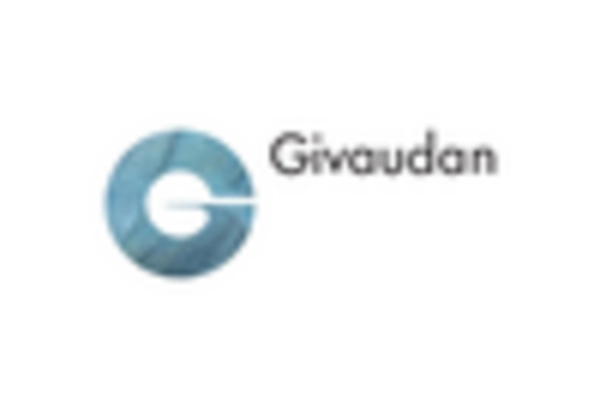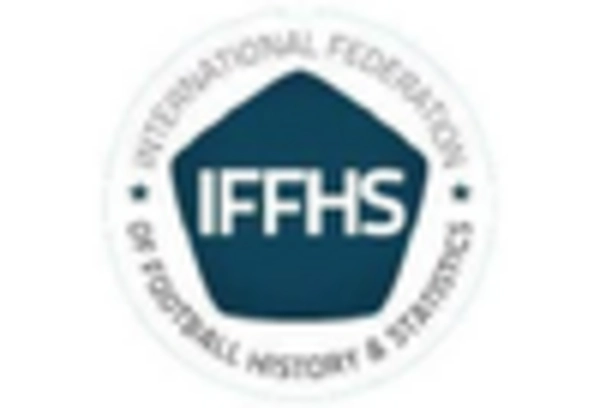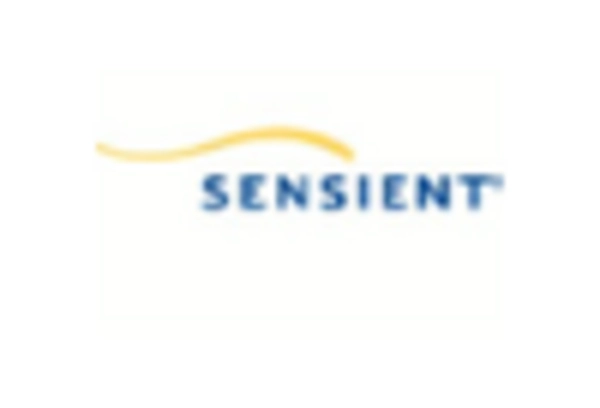Health and Wellness Trends
The Meatless Flavor Additive Market is significantly influenced by the rising health and wellness trends among consumers. As individuals become more aware of the health implications associated with meat consumption, there is a marked shift towards plant-based diets that are perceived as healthier. This trend is supported by data indicating that a considerable percentage of consumers are actively seeking out meatless options that are rich in nutrients and low in saturated fats. Flavor additives play a crucial role in this transition, as they enhance the palatability of meatless products, making them more appealing to health-conscious consumers. Consequently, the Meatless Flavor Additive Market is likely to see increased investment in research and development to create flavor profiles that align with health trends, thereby attracting a broader audience.
Innovation in Food Technology
The Meatless Flavor Additive Market is witnessing a wave of innovation driven by advancements in food technology. As companies strive to create meat alternatives that closely replicate the taste and texture of traditional meat, the role of flavor additives becomes increasingly critical. Recent technological developments have enabled the creation of more complex and appealing flavor profiles, which are essential for consumer acceptance of meatless products. Market data indicates that investment in food technology is on the rise, with companies exploring novel ingredients and processing techniques to enhance flavor. This innovation not only improves the sensory experience of meatless options but also positions the Meatless Flavor Additive Market at the forefront of culinary advancements, potentially attracting a diverse consumer base.
Increasing Demand for Meat Alternatives
The Meatless Flavor Additive Market is experiencing a notable surge in demand for meat alternatives, driven by a growing consumer preference for plant-based diets. This shift is largely influenced by health consciousness, environmental concerns, and ethical considerations surrounding animal welfare. According to recent data, the market for meat alternatives is projected to reach substantial figures, indicating a robust growth trajectory. As consumers increasingly seek products that mimic the taste and texture of meat, the demand for innovative flavor additives that enhance the sensory experience of meatless options is likely to rise. This trend suggests that companies within the Meatless Flavor Additive Market must adapt their offerings to meet evolving consumer expectations, potentially leading to the development of new and exciting flavor profiles.
Sustainability and Environmental Awareness
Sustainability concerns are becoming increasingly prominent in consumer decision-making, significantly impacting the Meatless Flavor Additive Market. As awareness of the environmental impact of meat production grows, consumers are gravitating towards meatless options that are perceived as more sustainable. This shift is reflected in market data, which suggests that a substantial portion of consumers is willing to pay a premium for products that are environmentally friendly. Flavor additives that enhance the taste of meatless products are essential in this context, as they help to bridge the gap between sustainability and consumer satisfaction. The Meatless Flavor Additive Market must therefore focus on developing sustainable flavor solutions that resonate with environmentally conscious consumers, potentially leading to a more sustainable food system.
Regulatory Support for Plant-Based Products
The Meatless Flavor Additive Market is benefiting from increasing regulatory support for plant-based products. Governments and regulatory bodies are recognizing the potential health and environmental benefits of promoting meat alternatives, leading to favorable policies and initiatives. This support is reflected in various programs aimed at encouraging the development and consumption of plant-based foods. Market data suggests that such regulatory frameworks are likely to stimulate growth within the Meatless Flavor Additive Market, as they create a conducive environment for innovation and investment. Companies are encouraged to explore new flavor additives that comply with regulatory standards while appealing to a growing segment of consumers seeking meatless options. This alignment between regulatory support and market demand could foster a thriving ecosystem for meatless flavor innovations.


